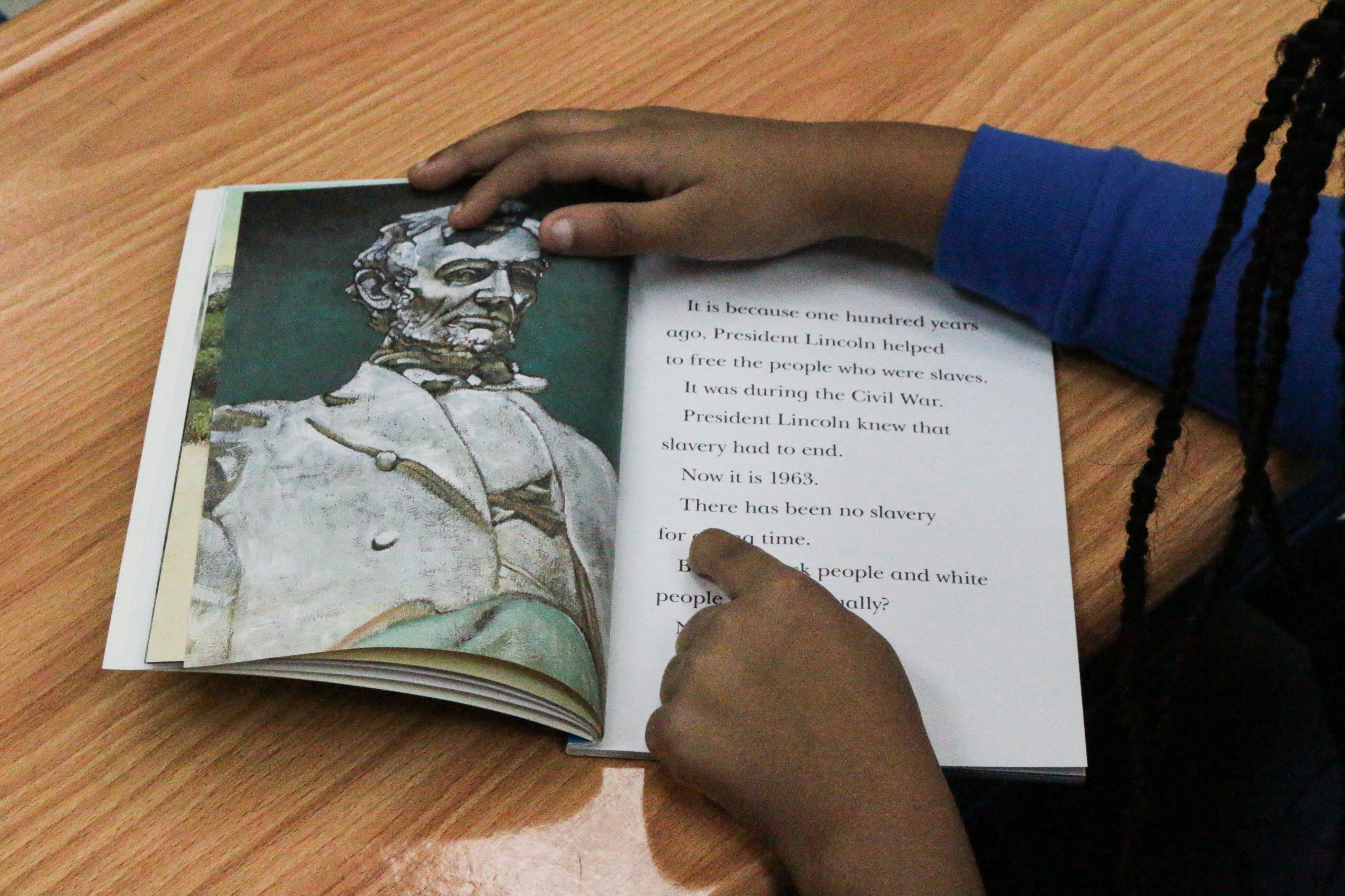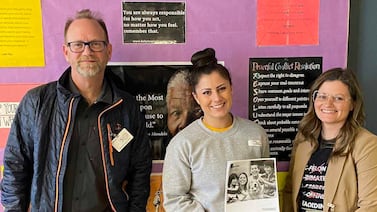Mayor Eric Adams has made improving reading instruction across the nation’s largest school system one of his major education goals. In doing so, he is disbanding a key literacy program launched under former Mayor Bill de Blasio, according to sources familiar with the policy shift, raising questions about the new administration’s strategy.
After six years, the education department is winding down its “Universal Literacy” program, which paired coaches with K-2 teachers in more than half of New York City’s elementary schools to improve their reading instruction.
Instead, the city plans to continue to employ reading coaches, but they will work across all grades at an unspecified number of “targeted” elementary, middle, and high schools, officials have said.
There will also be far fewer coaches on hand: Department officials plan to hire 200 coaches for grades K-5, down from roughly 500 coaches focusing on grades K-2 in prior years. Officials plan to hire 60 coaches to serve middle and high schools and another 80 staffers to help schools implement dyslexia screenings and analyze the data.
Coaches currently in the program must reapply for the newly created coaching positions.
Some coaches who have been working for years with particular schools say they are seeing results after building those relationships over time and worry about losing the momentum if they’re redeployed or not rehired. But critics point out the program’s benefits have been modest and have doubts over whether the current model is worth the cost — roughly $240 million through last year, according to the Independent Budget Office.
“The initiative is ending, that’s for sure,” said an education department employee with knowledge of the policy shift who spoke on condition of anonymity in order to speak freely. A message about the program’s end was also communicated to literacy coaches during a virtual meeting last month, according to three people who were present.
Education department officials framed the changes as an expansion of the Universal Literacy program’s mission to reach students across more grade levels. But it also appears that coaches may be stretched across more campuses than they currently are. The new job postings indicate elementary school coaches will be required to work with between two and five schools — instead of one or two — and between five and six schools at the secondary level. An education department spokesperson, however, said the elementary school coaches will generally work in pairs and be assigned to two schools each.
“That’s a big difference in the level of support they’re going to get,” said a Queens literacy coach who spoke on condition of anonymity to speak freely. “It took four years to build that relationship and that trust to start to make changes … to throw that all the way [out] and start over — does that really make sense?”
The Universal Literacy program’s initial ambition was for 100% of the city’s third graders reading on grade level by 2026. About 53% of third graders were considered proficient in reading before the pandemic disrupted state testing, up 12 percentage points since the program’s launch in 2016.
An education department study reported mixed signs of success after the program’s second year, with surveys revealing some resistance to the coaches and disconnects between what schools needed and what the coaches were able to provide. Still, the initiative was popular among school leaders, and it appeared to produce greater gains in reading comprehension at schools that had access to the coaching compared with schools that did not, revealing “small but encouraging indicators of impact,” according to the report.
Education department officials did not offer a detailed explanation about why they’re overhauling the program or scaling back the number of coaches.
“Making sure every student can read is foundational to preparing students for lifelong success and a core goal of this administration,” wrote Nicole Brownstein, an education department spokesperson. “We are developing and strengthening this literacy coaching support, giving teachers across all grades access to literacy coaches.”
Susan Neuman, an early literacy expert at New York University and former federal education official, said she was skeptical of the impact of the universal literacy program under de Blasio and is even more wary of the new administration’s apparent plan to use fewer coaches with larger portfolios of schools.
“It won’t work if you have a coach who is working with different schools, different grades, different needs,” she said. “There’s not enough dosage, there’s not enough saturation for this to have meaningful change.”
Neuman believes a higher-impact change is to require schools to choose from a small number of high-quality curriculums, rather than the current practice which has resulted in a hodgepodge of choices across schools.
Adams unveiled a plan last month to screen students across the system for dyslexia and require schools use phonics-based reading curricula, though it’s not yet clear how that shift will play out in classrooms.
Though the announcement garnered many accolades, some people connected to the Universal Literacy program said they were frustrated that their program appeared to be ending without deeper analysis by schools Chancellor David Banks.
There hasn’t “been any interest by the new administration in how we’ve done this work,” said a department employee connected to the literacy program. “They’re just going to do what they think instead of following what they have talked about with looking at what has worked and trying to improve upon it, scale it.”
Lisa Schwartz, a literacy coach at two schools, said department officials encouraged current coaches to apply for the new coaching positions. But she’s anxious about whether she’ll be able to maintain relationships with her current schools, including P.S. 236 in the Bronx, which is in the midst of transitioning to a new reading curriculum.
“When you lose the person who is spearheading it, it’s very hard to maintain that high quality,” Schwartz said. (Department officials said the city would work to keep coaches at their current schools “wherever possible.”)
Schwartz has been working with teachers at P.S. 236 to help lesson plan and pace the new lessons, which rely heavily on challenging nonfiction texts. The school previously used a controversial curriculum developed by Teachers College, which Banks is encouraging schools to abandon.
Until this school year, Schwartz had worked with only one school instead of two, and had just started to figure out how to balance her role across multiple campuses.
“That was a huge change for me and I finally learned how to do that well and now it’s changing again,” she said.
“I know that with every mayor and chancellor that comes in, they want to put their stamp on something new and different and make it their own. That’s certainly the way they’re going.”
Alex Zimmerman is a reporter for Chalkbeat New York, covering NYC public schools. Contact Alex at azimmerman@chalkbeat.org.








